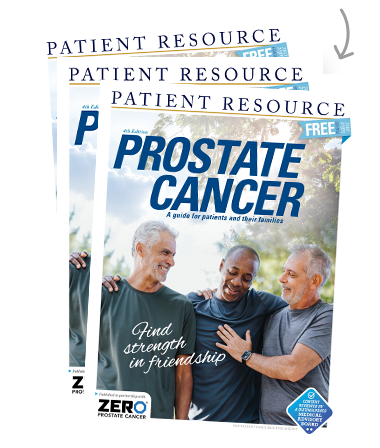Prostate Cancer
Today, an increasing number of cancer treatments are oral therapies (pills), which means patients are responsible for how and when they take their medications. It is important to know that to be fully effective, every dose must be taken with accuracy, precise timing and safety precautions, whether you receive it via IV, injection or pill form. Taking the right dose of the right drug at the right time on the right schedule is referred to as medication adherence.
Most cancer therapies are designed to maintain a specific level of drugs in your system for a certain time based on your cancer type and stage, your overall health, previous therapies and other factors. If your medications aren’t taken exactly as prescribed, the consequences can be serious, even life-threatening.
Taking medications from the comfort of home comes with more responsibility. Though taking your cancer treatment correctly may sound simple, it requires serious effort and coordination to make it happen. Medication adherence also includes attending your appointments at a cancer center or medical office to receive IV infusions or injections. Set reminders to help you remember to leave on time.
Start by talking with your pharmacist. Pharmacists not only prepare and dispense prescriptions, ensure medicines and doses are correct and prevent harmful drug interactions, they also counsel patients on the safe and appropriate use of their medications. Your pharmacist is an excellent resource, especially if you have multiple prescriptions for cancer and other conditions. Never hesitate to ask your pharmacist a question.
Keeping track of your adherence is an important part of being successful. It can be helpful to write down any side effects you experience during treatment so you remember to tell your doctor. Sharing these details allows your doctor to manage and monitor these side effects and will help you keep track of your medication schedule.
If you miss a dose or take one late, tell your health care team. The information you provide can help them determine whether to change the dose or even change the drug based on your reaction. Although dosing changes are sometimes necessary, don’t ever make changes to your treatment regimen without being told to do so by your doctor.
Explore the many reminder tools available to help you. Set alarms or phone reminders, make a daily medication schedule, use a weekly pillbox, ask loved ones to remind you, track medications on a calendar, or check out medication trackers online or use smartphone apps. You have many options to help you stay on track.
Some prostate cancer drugs are available only through limited distribution to certain pharmacies called specialty pharmacies. In addition to dispensing the drugs accordingly, these specialty pharmacies must be able to provide clinical support and patient education, including information and counseling on the proper administration, intended benefit and potential adverse effects of each drug.
A specialty pharmacy may also have a pharmacist or nurse make regular follow-up calls to patients to help guide them through their comprehensive cancer care. This involvement allows more effective monitoring of a patient’s disease progression, medication adherence and quality of life. It also allows medical personnel to respond appropriately to specific complications from a medication.
Specialty pharmacies are vital to the success of many anticancer regimens because they help enhance care for people with cancer. Your doctor will let you know if your prescription requires a specialty pharmacy and will work with you to get the prescription filled.
- When you take the right dose of the right drug at the right time on the right schedule, you are taking your medicine correctly.
- A variety of tools, such as pill boxes, calendars and apps, are available to help remind you to take your medications.
- Your cancer medication may be available from a specialty pharmacy.
- Your pharmacist is a resource who can help you take your medication as directed.



